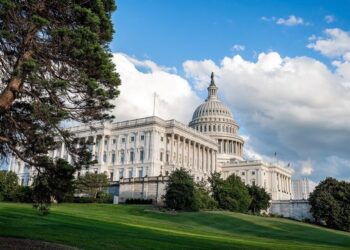Experiencing a car accident in California can be a jarring event, leaving individuals unsure of their next steps. Being prepared with a clear strategy not only protects one’s safety but also safeguards legal rights. Immediately after a car accident, it is crucial to ensure personal safety and call 911 if anyone is injured. This simple yet vital step can help in managing the aftermath more effectively.
Next, it’s essential to document the scene thoroughly. Taking photos, exchanging information with the other driver, and noting witness contacts can be invaluable. These actions may significantly aid in any potential legal processes, such as discussing the case with a trusted California car accident lawyer.
In addition to handling matters at the scene, individuals should also notify their insurance company promptly to report the accident. This ensures that all necessary information is recorded, potentially speeding up claims processes and assisting in receiving compensation. Legal assistance may be beneficial to navigate complex situations or when injuries are involved, guiding the most effective actions to take.
Immediate Actions Post-Accident
After a car accident in California, taking immediate and clear steps is crucial. Prioritize safety and medical needs, ensure proper reporting, and consider the initial legal implications to protect one’s rights effectively.
Ensuring Safety and Assessing Injuries
In any vehicle collision, the first priority is safety. All involved should move to a safe location if possible, away from traffic. It’s important to turn on hazard lights to warn other drivers.
Checking for injuries among passengers and oneself is critical. If anyone is hurt, call 911 immediately for emergency responders. Avoid moving injured individuals unless there’s an imminent danger. Also, be attentive to road conditions and traffic signs as these could affect safety.
Reporting the Accident and Information Exchange
California law requires reporting the accident to authorities when there are injuries or significant damage. Contact the police to file a police report. For minor collisions without injuries, exchanging information with the other driver is necessary.
This includes sharing name, address, phone number, driver’s license number, and insurance details. Documenting the scene with photos is also advisable to have a visual record. Gathering witness information for statements can prove helpful later.
Initial Legal Considerations
Understanding one’s legal rights is vital post-accident. Consulting a car accident lawyer can clarify complex legalities and protect one’s rights. Options include reaching out to a personal injury attorney specializing in California law to assess the situation and legal needs.
It’s also important to report an accident to the California Department of Motor Vehicles within ten days if there are injuries or property damage over $1,000. Retaining a copy of the accident report ensures all information is properly documented for legal purposes.
Post-Accident Follow-Up
After a car accident in California, several steps are crucial to safeguard legal rights and secure fair compensation. Addressing medical concerns, managing insurance proceedings, and navigating the legal process are key.
Medical Attention and Documentation
Seeking medical attention is imperative after an accident, even if injuries are not immediately apparent. Hidden injuries, such as whiplash, may manifest later and require prompt medical care. Maintaining a detailed record of all medical expenses, including medical appointments and follow-up visits, supports future claims.
Medical records play a vital role in establishing the extent of injuries and associated costs. They also serve as key evidence in claims for pain and suffering damages. Comprehensive documentation helps ensure rightful compensation and facilitates smoother interactions with insurance companies.
Insurance and Compensation
Contacting your insurance company promptly is critical. Providing accurate accident details helps initiate insurance claims. Understanding the terms of collision coverage and underinsured motorist coverage can inform expectations regarding compensation.
The claims process involves negotiating with insurance companies. Compensation depends on factors like vehicle damage and medical bills. Comparative negligence laws in California can affect fault determination. Therefore, clarity about legal rights and potential compensation is essential to protect individuals from potentially unfair settlement offers.
Legal Process and Settlement
Consulting a personal injury lawyer may be beneficial in navigating the legal process and settlement negotiations. These professionals provide guidance on aspects such as car accident claims, maximizing compensation, and protecting legal rights within the statute of limitations.
A lawyer aids in gathering evidence and understanding complexities related to pure comparative negligence. Their expertise can influence fault determination and strengthen a case, affecting the outcome of settlement offers. Effective legal support ensures that victims receive fair compensation for their injuries and losses, considering both immediate and future impacts.










